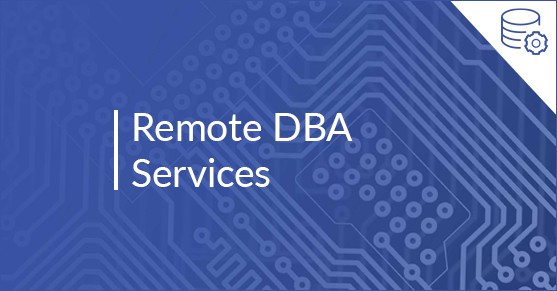Selecting the right database administration approach is rarely straightforward for organizations navigating modern IT landscapes. Businesses are constantly weighing the benefits of cost optimization against the need for operational oversight. One of the more nuanced decisions in this area revolves around whether to maintain an in-house team or leverage remote DBA services. This choice impacts not only budgets but also how teams interact with data, manage security, and support growth initiatives.
When organizations consider shifting to external database management, one of the first elements assessed is cost efficiency. Remote DBA services often promise reduced overhead by minimizing the need for full-time staff, lowering training costs, and consolidating tools under one service provider. For many businesses, this reduction in financial burden creates room to reallocate resources toward innovation or core competencies. These savings can be particularly valuable for companies that experience fluctuating database demands or seasonal operational spikes, as remote models often provide flexible, scalable arrangements that traditional in-house setups cannot easily match.
Yet cost efficiency comes with its own set of trade-offs, particularly when it intersects with control. For organizations with sensitive data, strict regulatory requirements, or complex internal processes, handing over database responsibilities to a third party can feel like relinquishing a degree of oversight. In-house teams often provide the immediate visibility and fast response that executives and compliance officers expect, whereas external teams may operate within defined service-level agreements that limit on-demand adjustments. This perceived gap can make decision-makers hesitant to commit fully to remote solutions.
The tension between cost and control is not necessarily a binary choice. Many businesses discover that remote DBA services can integrate into existing operational frameworks without undermining authority or strategic alignment. The key lies in evaluating vendors based on transparency, reporting capabilities, and their willingness to tailor services. Providers that offer structured access to real-time performance dashboards, collaborative planning sessions, and incident escalation protocols often mitigate the sense of lost control. This hybrid interaction fosters trust while retaining the financial advantages of outsourcing.
For industries experiencing rapid digital transformation, the stakes become higher. Retailers managing omnichannel systems, healthcare providers safeguarding sensitive patient information, and financial institutions dealing with transaction-heavy environments all face unique challenges when determining whether remote database management is a fit. A misstep in database performance or compliance handling can result in significant reputational damage or regulatory penalties. In these scenarios, the decision hinges less on headline cost savings and more on how well remote DBA services can adapt to industry-specific requirements.
Another often-overlooked aspect is the evolution of internal IT roles. As businesses move toward cloud adoption and distributed systems, the traditional scope of a database administrator is expanding. Teams now juggle integration across multiple platforms, disaster recovery planning, and ongoing optimization for performance-intensive applications. Remote DBA services can complement this shift by providing specialized expertise in areas where in-house staff may lack depth. Instead of replacing internal teams entirely, these services can act as an extension, handling routine monitoring and maintenance while allowing internal teams to focus on innovation-driven tasks.
Organizations also need to consider the long-term implications of their decision. Cost savings in the short term can become less attractive if they result in vendor lock-in or a loss of internal knowledge over time. Similarly, holding tightly to in-house control without adapting to scalable external solutions can slow down modernization efforts and hinder competitiveness. Businesses looking to future-proof their database strategy often benefit from drafting phased engagement plans with remote providers, where both cost and control evolve over time based on predefined milestones and performance benchmarks.
When examining the market, the availability of robust and specialized solutions makes this decision even more strategic. For example, some providers, like remote DBA services, are designed to support businesses with tailored approaches that prioritize cost management while respecting internal governance structures. These offerings often include proactive monitoring, advanced troubleshooting, and customized service agreements that fit both agile startups and large enterprises with legacy infrastructures.
It is also worth noting that the cultural dimension within organizations plays a significant role in how well remote partnerships succeed. Companies that foster transparent communication, data-driven decision-making, and adaptive workflows tend to extract more value from external teams. Resistance often arises when teams fear redundancy or when leadership frames outsourcing as purely a cost-cutting exercise rather than a strategic enhancement. Framing remote database administration as a collaborative, expertise-driven partnership helps organizations maintain control over strategic directions while benefiting from the efficiency gains that outsourcing provides.
Looking ahead, the discussion is likely to shift from whether remote DBA services are viable to how organizations can integrate them without compromising resilience. Automation, artificial intelligence, and predictive analytics are already reshaping the role of database management, creating opportunities for remote teams to deliver more proactive value. As these capabilities mature, the ability to negotiate balanced agreements that respect both cost objectives and governance will become a defining trait of successful businesses in the data-driven era.
Instead of treating cost and control as opposing forces, organizations that adopt a layered strategy often find they gain more than they sacrifice. By starting with a pilot program, setting clear expectations, and aligning responsibilities between internal staff and external experts, businesses can craft a model that minimizes financial waste while maintaining operational command. For some, this model leads to a long-term hybrid setup that enhances resilience. For others, it becomes a stepping stone to a fully outsourced, yet strategically governed, database administration structure.
In the end, deciding between in-house teams and remote DBA partnerships is less about choosing one over the other and more about how well the chosen model aligns with evolving business priorities. The organizations that excel are those that approach this decision not as a single cost-cutting exercise, but as a strategic maneuver to create sustainable, scalable database ecosystems.





